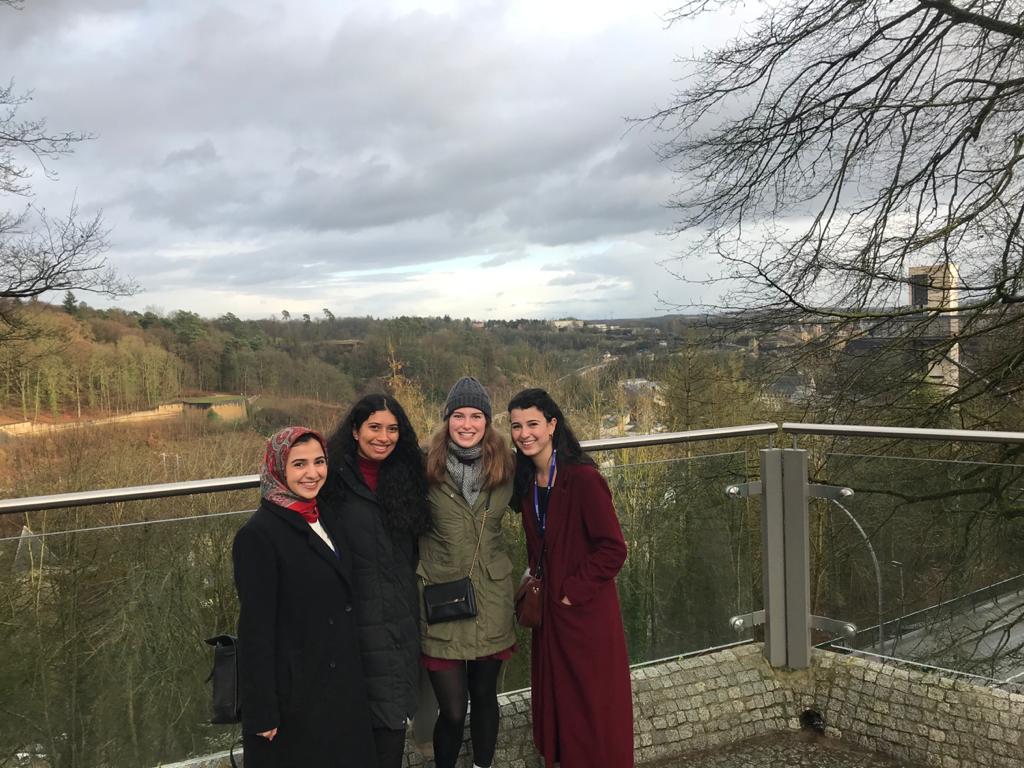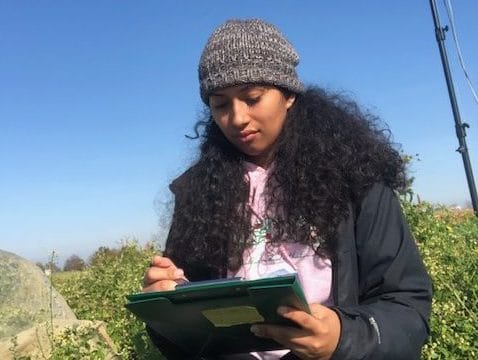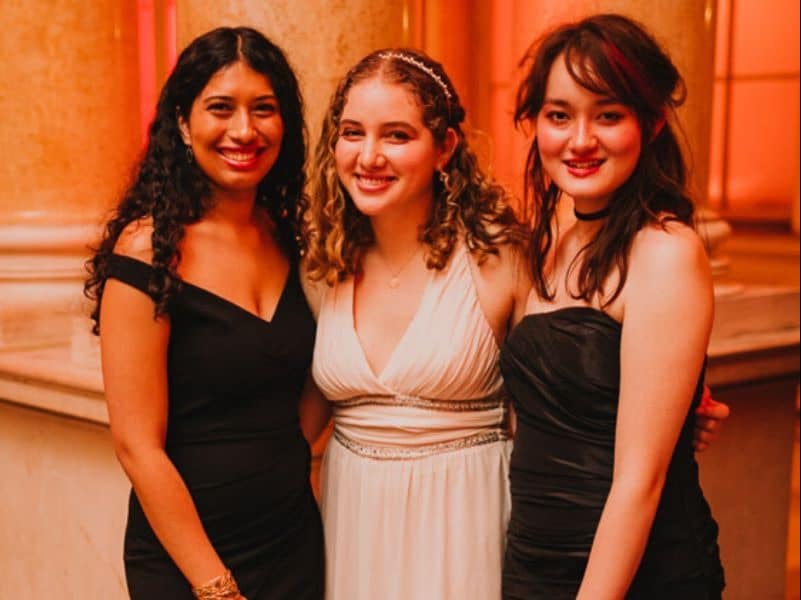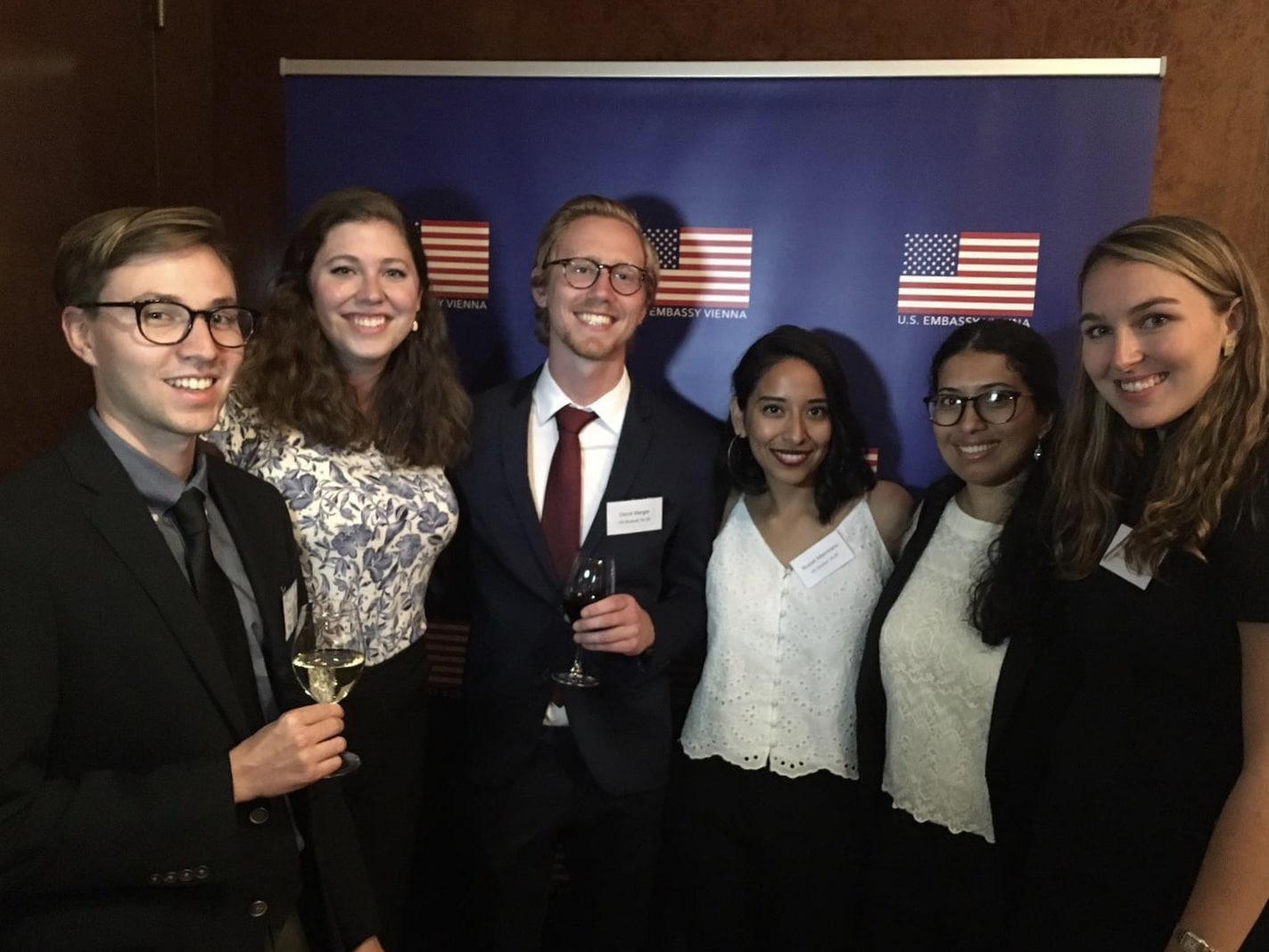
A U.S. Student Fulbright Grant allows for individually designed study/research projects that will take place during one academic year (9-12 months) in a country outside the U.S. Applicants design their own projects and will typically work with advisers at foreign universities or other institutes of higher education. The study/research awards are available in approximately 140 countries. One of the many grants available is the Fulbright-Austrian Marshall Plan Foundation Award for Graduate Studies and Ph.D. Research in Science and Technology, which funds a year of study in Austria. The experience culminates in a final research paper which is publicly available.
We talked to Alexandra Hauke, a 2019-2020 recipient of the Fulbright-Austrian Marshall Plan Foundation Award for Graduate Studies and Ph.D. Research in Science and Technology. She shared with us some highlights of her fellowship and gave us some helpful application tips.
1. What inspired you to apply for the Fulbright–Austrian Marshall Plan Foundation Award?
I applied for the Fulbright because I wanted to collaborate on an international multi-interdisciplinary research project while living abroad. As a biological engineer with a largely scientific research background, I hoped to be able to further my knowledge within the bio-energy community. My project was called the Evaluation and Reduction of Greenhouse Gas emissions from Austrian Biogas Plants. I worked with my host affiliation, the University of Natural Resources and Life Sciences, Institute of Waste Management, helping to analyze methane emissions from biogas manufacturing plants in Austria to reduce fugitive greenhouse gas emissions. I also spent time working in the lab, conducting experiments on various types of instrumentation to try to improve data quality. I hoped to create a scientific technical report to help give a clearer understanding of the quantification process of greenhouse gases from biogas plants in the EU in order to provide some insight for the U.S.
Additionally, as a bi-racial black woman who lived abroad in Germany when younger, I also wanted to work in a country where I could improve on my current language skills. Lastly, my mother received a Fulbright fellowship in the 90s and always spoke about what an amazing experience she had, which cultivated my interest in the program in the first place.

2. What are the benefits of the fellowship?
The Fulbright grant is great in that you’re supported by your local commission but given complete freedom when it comes to your project. It’s completely normal for your project proposal to shift a bit after you arrive in your host country, and being able to adjust based upon that change without being micromanaged makes that adjustment way easier. I also appreciate that Fulbright Austria gave grantees enough money to ensure a livable wage and to fully cover all transportation expenses. I also was able to take advantage of other career opportunities through Fulbright, such as the fully-funded EU-NATO seminar and a Women in Tech conference in Poland. Through events such as these, I was able to network, gain more knowledge and learn more within my field.
During the 7-month period, I got to work with an amazing group of scientists, meet friends from Austria and the rest of the EU and immerse myself in Austria’s unique culture. One highlight of my Fulbright year was traveling around my host country doing various field tests. It was an amazing way to see beautiful, lesser-known parts of Austria while connecting and working with my coworkers. A second highlight was attending my first ever ball at the historical Hofburg palace in Vienna.

3. You completed your grant during the 2019-2020 season. How did COVID-19 affect your Fulbright experience?
While Covid-19 did affect my project and made it unable for me to continue the experiments I had set up for the rest of the year, I was still able to ultimately fulfill 2/3 of my overall project objectives. While it was disappointing that my grant ended early, I still am extremely happy that I was able to live and experience life in Vienna, Austria for as long as I did.
4. What tips would you give others applying to the Fulbright–Austrian Marshall Plan Foundation Award Fellowship?
I would try to do as much research as possible on the country beforehand, in order to show to the panel why you need to be in Austria for the coming year to work on your project. I think part of the reason my application stood out was due to the fact that bio-energy and environmental issues are gaining a stronger interest in Austria. Having an affiliation letter as well as stating places I was interested in seeing in Austria for both educational and cultural reasons seemed to be an asset to my application as well. I also noticed that they seemed to more interested in my past research experiences and how they related to my proposed research in Austria than anything else. Lastly, I would recommend working with a university in Austria that has worked with a Fulbright Research Scholar before, especially if you are cold-emailing trying to find an advisor and/or affiliation. They’re more likely to understand the program goals and objectives, as well as respond back in the first place.

Alexandra Hauke is a 2019-2020 recipient of the Fulbright-Austrian Marshall Plan Foundation Award for Graduate Studies and Ph.D. Research in Science and Technology. She spent her time abroad working with her host affiliation to analyze emissions from biogas manufacturing plants in Austria to reduce fugitive GHG emissions. Her goal concerned the completion of a technical paper covering what she’s accomplished with recommendations for the American Biogas Community, in order to share knowledge in the pursuit of international collaboration and learning. Alexandra is a graduate of North Carolina A&T State University, Class of 2019. She also the co-founder of a new project called Finances for the Future A-Z, which was funded by the Citizen Diplomacy Action Fund for U.S. Alumni (Rapid Response) and sponsored by the U.S. Department of State.
Interested in applying? Bookmark Fulbright U.S. Student Program to your ProFellow account.
© Victoria Johnson 2020, all rights reserved